 Petzlover
Petzlover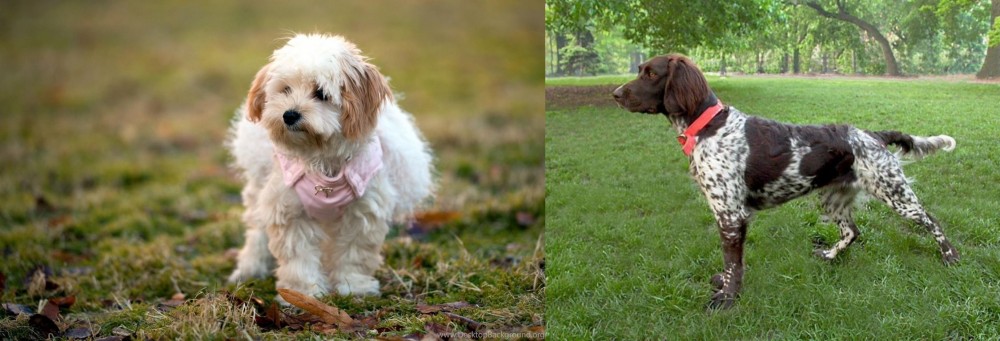 West Highland White Terrier is originated from United Kingdom but Small Munsterlander is originated from Germany. West Highland White Terrier may grow 26 cm / 10 inches shorter than Small Munsterlander. West Highland White Terrier may weigh 16 kg / 35 pounds lesser than Small Munsterlander. Both West Highland White Terrier and Small Munsterlander has almost same life span. Both West Highland White Terrier and Small Munsterlander has almost same litter size. West Highland White Terrier requires High Maintenance. But Small Munsterlander requires Low Maintenance
West Highland White Terrier is originated from United Kingdom but Small Munsterlander is originated from Germany. West Highland White Terrier may grow 26 cm / 10 inches shorter than Small Munsterlander. West Highland White Terrier may weigh 16 kg / 35 pounds lesser than Small Munsterlander. Both West Highland White Terrier and Small Munsterlander has almost same life span. Both West Highland White Terrier and Small Munsterlander has almost same litter size. West Highland White Terrier requires High Maintenance. But Small Munsterlander requires Low Maintenance
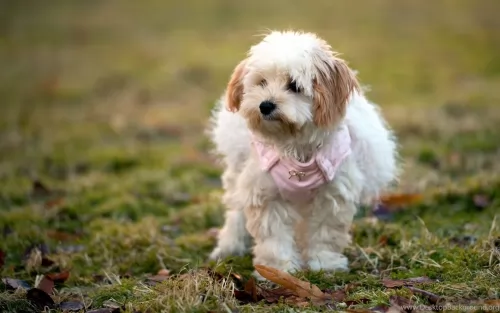 The West highland white terrier originated from Poltalloch in Scotland. So they were initially called as Poltalloch terrier and after that they were called as Roseneath terrier. They were initially used for hunting fox, badger, otter and in killing the vermin like rats.
The West highland white terrier originated from Poltalloch in Scotland. So they were initially called as Poltalloch terrier and after that they were called as Roseneath terrier. They were initially used for hunting fox, badger, otter and in killing the vermin like rats.
The breed history says that Colonel Malcolm of Poltalloch was the reason for the Westie's white colour. This is because in 19th centuryhe went for hunting with his dogs and accidentally he shot his dog as its colour was as fox. So he decided to breed only white colour dogs.
 Known also as the Kleiner Munsterlander or just plain Munster, the Small Munsterlander comes from the Munster region of Germany and is a beautiful hunting dog.
Known also as the Kleiner Munsterlander or just plain Munster, the Small Munsterlander comes from the Munster region of Germany and is a beautiful hunting dog.
The dog is recognized by the Fédération Cynologique Internationale as well as other kennel clubs. It is believed that the Small Münsterländer is an ancient breed, more than 500 years old.
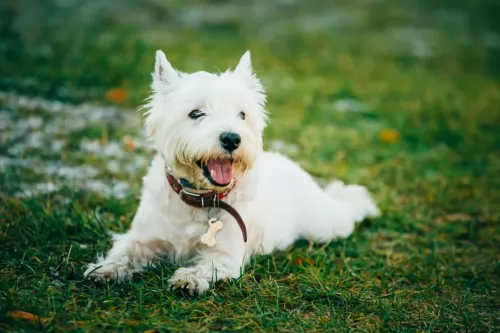 The Westie can be said as that a small dog having the talents of the big dog. They are very popular for their obedience. They are also working as therapy dogs and also some in search and rescue teams. The home having Westie will have fun always and be enthusiastic. They will suit them for country or city living, but they like to live with their family. They are well suitable for apartment living, but some training should be given to them for not barking. They can stay in home when you are at work. Westie can be taken to travel, whether it may be long vacation or a short visit.
The Westie can be said as that a small dog having the talents of the big dog. They are very popular for their obedience. They are also working as therapy dogs and also some in search and rescue teams. The home having Westie will have fun always and be enthusiastic. They will suit them for country or city living, but they like to live with their family. They are well suitable for apartment living, but some training should be given to them for not barking. They can stay in home when you are at work. Westie can be taken to travel, whether it may be long vacation or a short visit.
They are quick learners and so training them is not difficult. Mistakes of them can be corrected patiently since they don't like harsh activities against them. Westie will definitely bark when he sees something or hear different sounds. He will bark on seeing visitors or even other dogs. Sometimes they will bark for very silly things but when given appropriate training in their young stage, they can bark only for alerts.
 Standing at between 52–56cm in height and weighing between 17–26 kg, this dog is thought to be medium sized, muscled and athletic.
Standing at between 52–56cm in height and weighing between 17–26 kg, this dog is thought to be medium sized, muscled and athletic.
Looking like a large Spaniel he also has feathering around the legs and the tail. The coat is medium length and silky and tends to be slightly wavy. The coat is essentially white with large brown patches as well as some ticking.
Small Münsterländers are very intelligent dogs and they won’t have any trouble being trained and socialized. The Small Munsterlander is a natural born hunter and he is in his element when he is outdoors.
For this particular dog, it would be a shame to get a pet like this if you’re a couch potato. It is why this dog is better suited to living in the countryside as opposed to the city. He needs lots of exciting outdoor activities - hikes, walks, ball games, running and he loves swimming.
He is a loving, social dog and just wants to be 100% part of his human family and will adapt well to life with children in the home and with other pets.
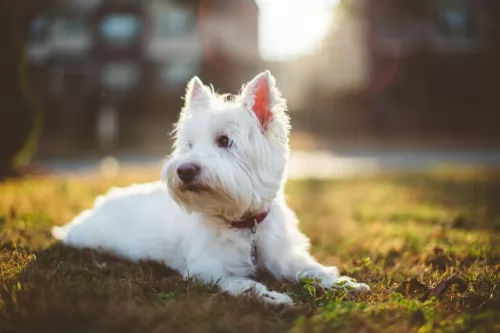 The Westie is friendly with children but not all the time. So some care should be taken while they are near children.
The Westie is friendly with children but not all the time. So some care should be taken while they are near children.
They like to chase rodents like rabbits as they are interested in hunting.
They are suitable for apartment living unless they are left alone for a very long time. They love cold weather more than hot.
They can be trained by giving some extra efforts.
 The Small Munsterlander is such a pretty looking dog with his silky hair. He isn’t only about good looks either and he is intelligent and alert and will learn easily.
The Small Munsterlander is such a pretty looking dog with his silky hair. He isn’t only about good looks either and he is intelligent and alert and will learn easily.
He is a well balanced dog and will make a great pet and companion. He is social, friendly, loving and loyal and makes a great playmate for children.
He has always been a hunting dog and likes to be busy with games and work. Go on a hike and he will love to join you, sniffing along woodland paths and chasing birds. He is in his element when outdoors.
When you bring this beautiful dog into your home, you’re guaranteed to have an ideal pet and companion for the entire family.
 There are many clubs and breeders who have a strong commitment to the health of the breed, and this is a healthy, robust dog breed.
There are many clubs and breeders who have a strong commitment to the health of the breed, and this is a healthy, robust dog breed.
The Small Munsterlander can succumb to one of the many common dog illnesses there are. These can be ear infections, dental problems, cancer, diabetes, hip dysplasia, obesity, bloat and many others.
There are so many things that can cause skin problems with your dog, and while it doesn’t sound particularly serious, it can drive your pet crazy as he tries to bite and scratch the itchy parts on his skin.
These nightmarish skin problems are one of the most common reasons pet owners seek veterinary assistance.
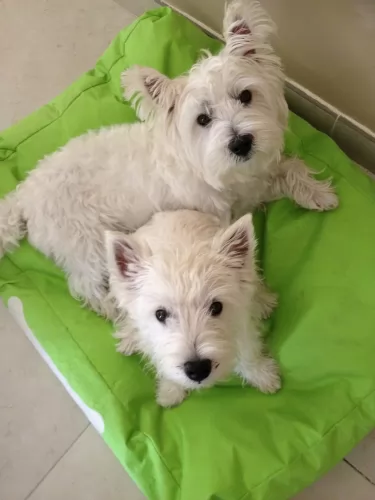 The puppy should be fed 3 to 4 times per day as it requires a considerable amount for their growth. Cooked chicken breast and turkey are best for them and also vegetables should be given to them. Beef and chicken should be kept a limit as it will lead to itchy skin and allergies.
The puppy should be fed 3 to 4 times per day as it requires a considerable amount for their growth. Cooked chicken breast and turkey are best for them and also vegetables should be given to them. Beef and chicken should be kept a limit as it will lead to itchy skin and allergies.
The preferable food for the Westie is home cooked. The home food will only contain all the essential nutrients for the Westie.
Eventhough the Westie is suitable for apartment living it is recommended to have a daily walk for him to be active and refreshing.
They should be made to play for atleast 30 minutes per day for their health as to not gain overweight. Grown up children can play with them as they like it.
 ⠂ Give your Small Munsterlander the best chance to be healthy and happy by being giving him the best dog food there is.
⠂ Give your Small Munsterlander the best chance to be healthy and happy by being giving him the best dog food there is.
Commercially manufactured dog foods can be a good choice as they’re convenient, and some of the best ones have a good balance of vitamins and minerals in them. Avoid the ones that are packed full of useless ingredients such as toxins and colorants.
Break the monotony of the dry kibble by giving your dog some home-made food. It can be added into the dry kibble about twice a week as a treat. Boiled brown rice and chicken, sweet potatoes, carrots and spinach as well as some pasta can be a nutritious treat. It can be chopped up and added to the dry kibble in small portions.
To avoid skin infections, try to include some raw meat into his diet occasionally.
⠂ Reduce excess hair with shedding by brushing your dog twice a week. Check for fleas and ticks at the same time.
⠂ Just like you, your dog needs a warm, dry, quiet place to sleep undisturbed.
⠂ Keep your garden free of dog poop so that your pet can enjoy a clean place to play and relax. Its hygienic too to pick up his feces regularly.